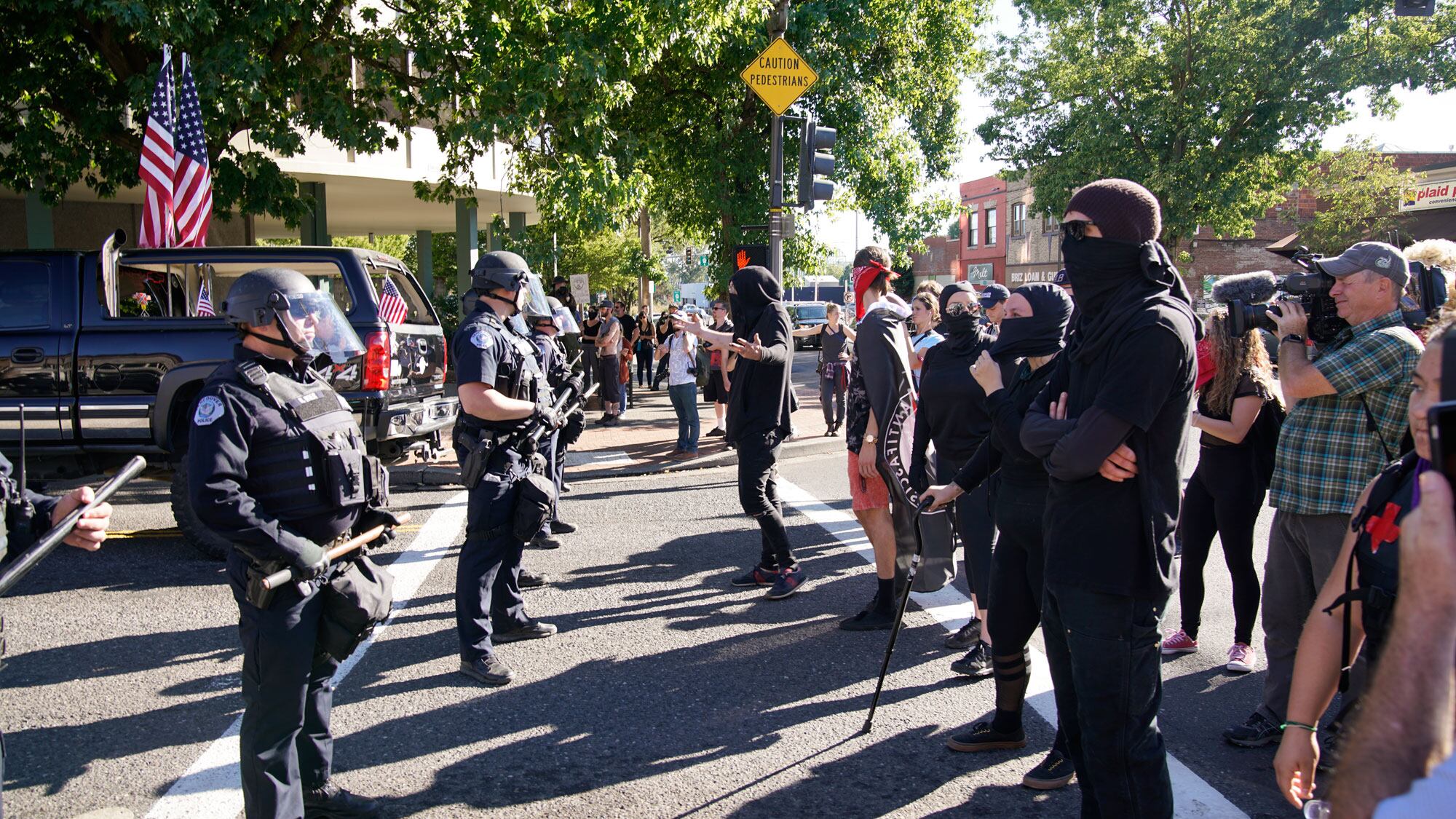Police in Vancouver, Wash. say they didn't arrest a man who sped his truck toward antifascist protesters on Sunday because he told them he was frightened and trying to escape the crowd.
The man, who Vancouver Police declined to identify, told officers that "he was in fear for his life," says Vancouver Police Lt. Kathy McNicholas. "He was scared. He was just trying to flee."
After stopping, cuffing and detaining the driver of a black Chevrolet Silverado that nearly collided with a group of antifa protesters Sunday, police let him drive away in his truck. They did not write the man a citation.
The man drove his truck, which had Oregon plates and was bedecked with several American flags and Confederate flag sticker, into a group of masked counter-protesters marching after protesting a far-right rally organized by Vancouver-based right-wing Patriot Prayer.
McNicholas says the driver claimed that the protesters on the street who yelled and banged on his doors scared him inside his vehicle. As he drove through the middle of the march, revving his engine and honking his horn repeatedly, he suddenly stopped and accelerated backwards.
Because of his claims, the officers decided they could not be sure a crime happened, McNicholas says.
After the car reversed out of the crowd, forcing people to jump out of the vehicle's path, the driver stopped at an intersection and revved his engine as counter-protesters scrambled to change their path and get out of the truck's way. He then went around the block and his path intersected with the protesters again—and that's when police pulled him over.
Officers are compiling their reports and forwarding their findings to the Clark County District Attorney, who will determine whether or not to file charges.
McNicholas says its not uncommon for police to choose not to make an arrest even if they might suspect a crime took place.
"Sometimes there's a crime that's committed, like when someone steals a candy bar, and we forward the case on to the prosecutor," McNicholas says.
McNicholas says that ultimately, the officers used their discretion when they decided not to arrest the driver: They may have determined that there either was no crime or that the man did not realize he was committing a crime.
But is ignorance of the law a valid defense for committing a crime?
"Sometimes, it depends, sometimes if there's no knowledge of it," says McNicholas.
She offered an example: "In the state of Washington, everyone has to have a garbage bag in their car." But McNicholas says she's never seen anyone ticketed for that violation—probably because officers recognize that the average person doesn't know it is a legal requirement.
It is an odd comparison, since it seems unlikely the driver was unaware that endangering pedestrians with a vehicle is illegal.
McNicholas said that officers at the scene had to weigh whether the man had a reasonable fear that caused him to step on the gas.
"If you were in that truck and being attacked," she asked, "wouldn't you want to get out of there?"
McNicholas says that new information could still influence the investigation and lead officers to determine that there was a crime and that it was intentional, but that has not happened yet.

